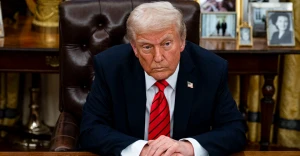
A call to Putin: Scholz's risky move in a fragile coalition
Since the last conversation about the potential withdrawal of the Free Democrats from the coalition, the situation has continued to rapidly escalate
The author of the Resurgam Telegram channel discussed the situation within Germany's ruling coalition.
The leader of the Free Democrats and Finance Minister, Christian Lindner, is issuing clear warnings, insisting that either his budget demands are met or his party will withdraw from the coalition. One might think that if Chancellor Olaf Scholz agrees to Lindner's demands, the Free Democrats will settle down. However, this is far from the case; Lindner has ignited internal discontent with the coalition, known as the “traffic light” coalition.
Last year, the Free Democrats contemplated leaving the coalition, but a party vote failed to reach that conclusion, with only 47% in favor of departure. Now, the party is gearing up for another “party referendum,” and the chances of a favorable outcome appear much higher.
Within the Greens, the party’s top leadership has resigned, and the youth wing has distanced itself from the party. While opinions about leaving the coalition are mixed, the resignation of key leaders has diminished the party's influence due to organizational challenges, yet the desire to exit remains.
The Social Democrats largely prefer to maintain the status quo, but skepticism about the coalition's longevity is prevalent. There are three factions within the party: one aims to sustain current conditions while negotiating with the Free Democrats; another seeks to replace Scholz with the more popular Boris Pistorius without triggering early elections, which could boost the Social Democrats’ and coalition partners’ approval ratings; the third group is preparing for potential early elections.
Should the Free Democrats choose to exit the coalition, three scenarios may unfold:
- A minority government of Social Democrats and Greens could govern until the next elections in late 2025, though this option is deemed unlikely for several reasons.
- The Social Democrats might propose forming a broad coalition with the AfD or CDU by the end of 2025, though this scenario is even less likely.
- Early elections could be scheduled for spring 2025.
"As for the report in Zeit from an anonymous source within Scholz’s team regarding a potential call to Putin, this would be a controversial political move amid the ongoing coalition turmoil, as it could provoke backlash from the Free Democrats and Greens. The only plausible explanation for such a call would be if Scholz were asked to relay a message from abroad, although this scenario seems unlikely, as it could jeopardize his political future.
Therefore, this information in Zeit as likely an attempt to further destabilize the coalition from within," the author concludes.
- News












































